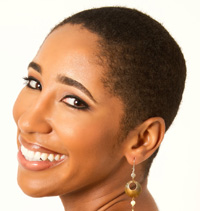|
From:TheBahamasWeekly.com Genderational - Alicia Wallace Any Bahamian paying attention to current events, news reports, and the bodies tasked with responding to the same expected a statement from the Bahamas Christian Council. As the self-appointed moral police of the nation, frequently supported and enabled by the government, the Council sees it as its duty to provide direction to the country and its leaders, supposedly driven by the tenets of The Bible. Regardless of one’s religious belief or moral position - and opinion on Bahamas Junkanoo Carnival - the fallacies of the argument put forth by the Council must be identified, examined, and disproved. Dr. Patterson’s chief concern appeared to be the effects of “immodest costumes” which, according to him, include promiscuity, fornication, rape, incest, and other sins of the flesh. Without delving into the issues of nationwide forced compliance with the interpreted rules of a particular religion, a critical assessment of the Council’s view of women’s bodies and violence enacted against them must be undertaken. The idea that women and girls invite acts of sexual violence against them is being promoted by the Bahamas Christian Council, thereby perpetuating rape culture. Whether or not he realizes it, Dr. Patterson’s comments serve to normalize and excuse the acts he seeks to prevent by policing women’s bodies. The stance he has taken, on behalf of the entire Council, serves to sexualize rape while blaming victims and attributing the injustices they suffer to the choices they have the right make without fear of judgment or reprisal. Women and girls live in a world where they are constantly watched, assessed, policed, shamed, and blamed, and by no fault of their own. They endure sexual harassment in the workplace, school, streets, and other public spaces. They are expected to smile on demand, have sex with their husbands as commanded, keep their problems to themselves, and struggle silently as they navigate a world clearly built for men. Perhaps one of the most egregious errors made by Dr. Patterson was born of his lack of understanding of sexual violence. Rape is not simply a result of sexual desire. While sex is sometimes is an objective, in the case of rape, it is often a tool used to achieve another objective. Rape is an expression of power, and an attempt to gain control. It is used as compensation for a deficiency, to prove superiority, or as an act of revenge. Violence, both sexual and otherwise, is used as a method of social control. In this way, it is similar to oppression. It is unclear whether or not Dr. Patterson is aware of the oppression implied by his objection to this new festival which is specific to the attire of women. Through his message, he seeks to take away women’s right to choose - the definition of oppression. Women and girls already live on the edge of society, but are still being pushed further and further away from the center, and into a realm of invisibility. “No, you can’t wear that!” they say.
“No, you can’t dance like that!” they say. “No, you can’t participate in this event!” they say. “No, you can’t consume this product!” they say.
Society says to women, “This is where you belong, this is what
you can do, and this is what others can do to you,” while corralling them to
the margins. “If you don’t follow these rules,” it warns, “bad things will
happen to you, and it will be your own fault. The people at the center can’t
control themselves, so you have to compensate by disappearing, remaining
silent, and submitting to the rules.”
A new direction must be taken by those purporting to protect
vulnerable members of society. Rape cannot be prevented by warning women to
dress for a blizzard at all times, refrain from going out at night, and avoid
carnival costumes and dancing at all costs. The message is constantly directed
at the wrong group of people. Women and girls do not need to be taught to avoid
rape. Their lived experiences teach them what the Bahamas Christian Council and
the Royal Bahamas Police Force could never accurately fit into an instruction
sheet. Living with the perpetual fear of rape creates an inherent ability to
think, rethink, and overthink decisions. There is no need for institutions and
people in positions of power to exercise further control over the oppressed.
Rather than policing potential victims, energies should be shifted to
addressing potential rapists. The Bahamas Christian Council has a wide reach, but fails to use it appropriately. We hear little from the Council and its members when church leaders are on trial for acts of sexual violence. We don’t see them when young people suffer publicly, images of them circulated among the young and old alike. Their morality does not hit the pages of the newspaper or televised news reports in these instances. They are selective in their participation in national dialogues, and rear their heads when it is convenient for them. If members of the Bahamas Christian Council are committed to the protection of women and girls, they will educate themselves on the definition, causes, and effects of sexual violence. They will focus on preventive measures which address the cause of such acts - the perpetrators, not the victims. They will:
Alicia
Wallace is a writer, blogger, and social and political commentator. She
holds a Bachelor of Commerce degree from St. Mary's University,
Halifax, NS. She is a women's rights activist, passionate about public
education, community engagement, and the empowerment of women and girls.
Alicia is the Director of Hollaback! Bahamas- part of a global movement to end street harassment - and Co-founder of the Coalition to End Gender-based Violence & Discrimination. She ser
ves as the Youth Ambassador for The Bahamas to End Sexual Violence, and is one of 60 recipients of the Queen's Young Leaders Award in 2015. Connect with her on Facebook.
Or
|
